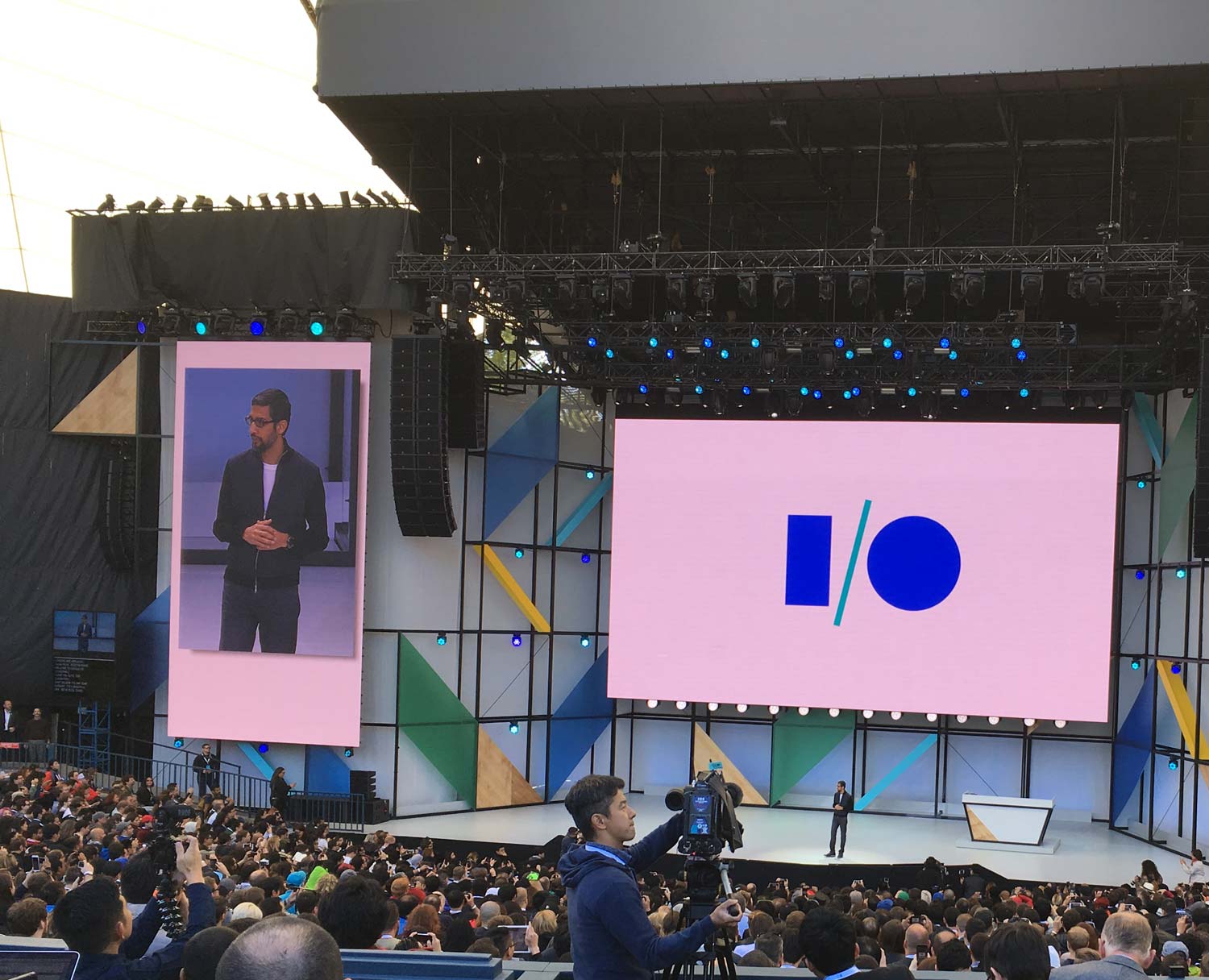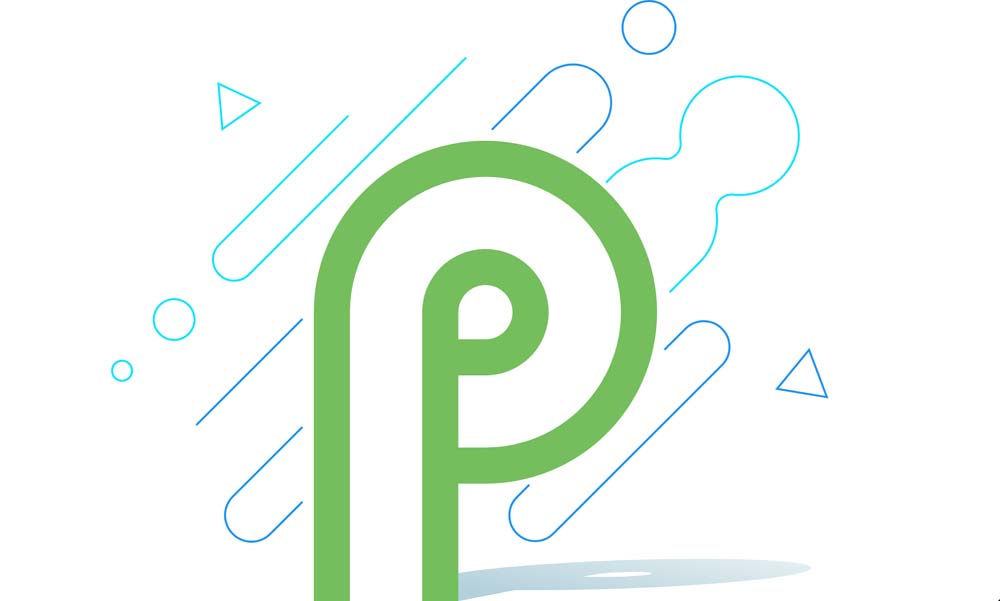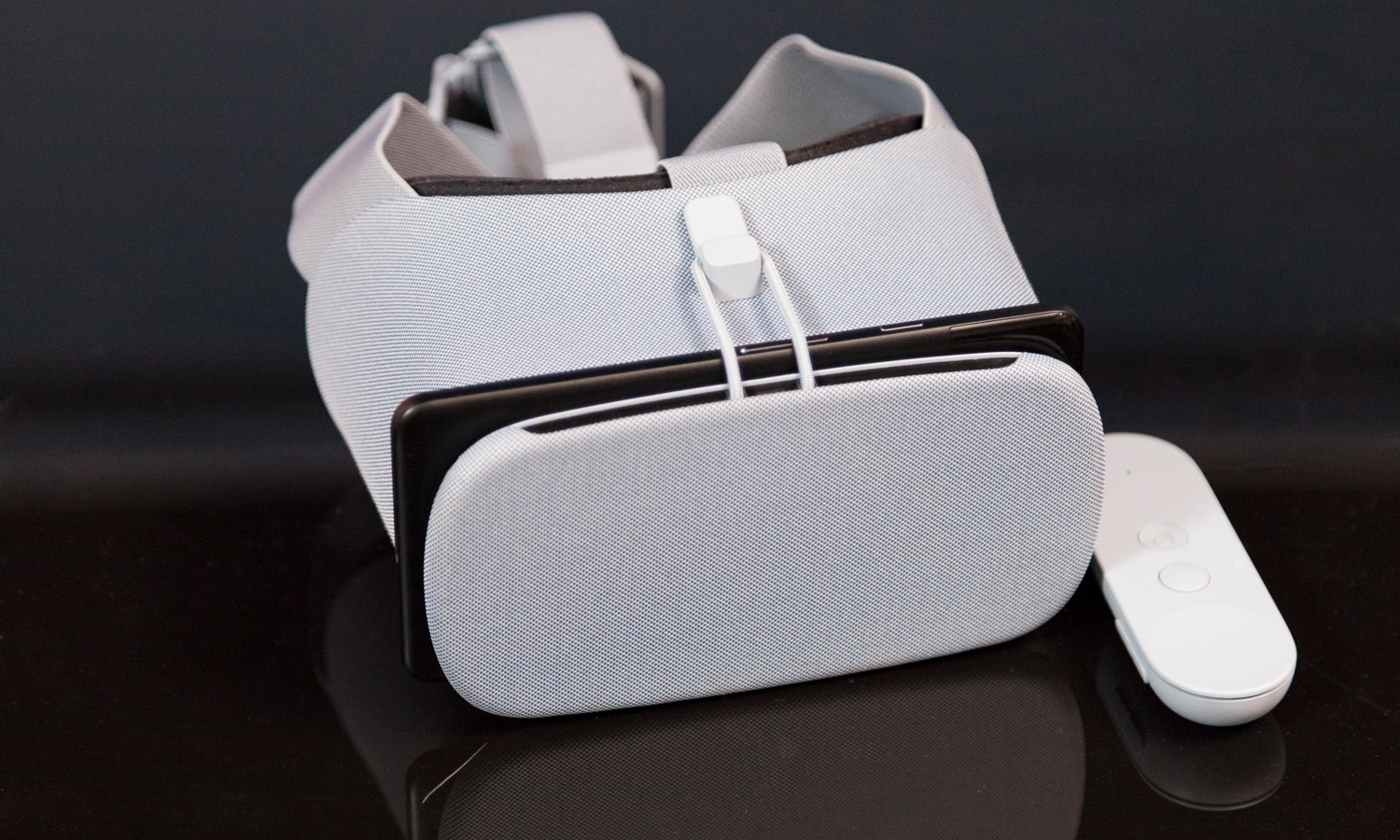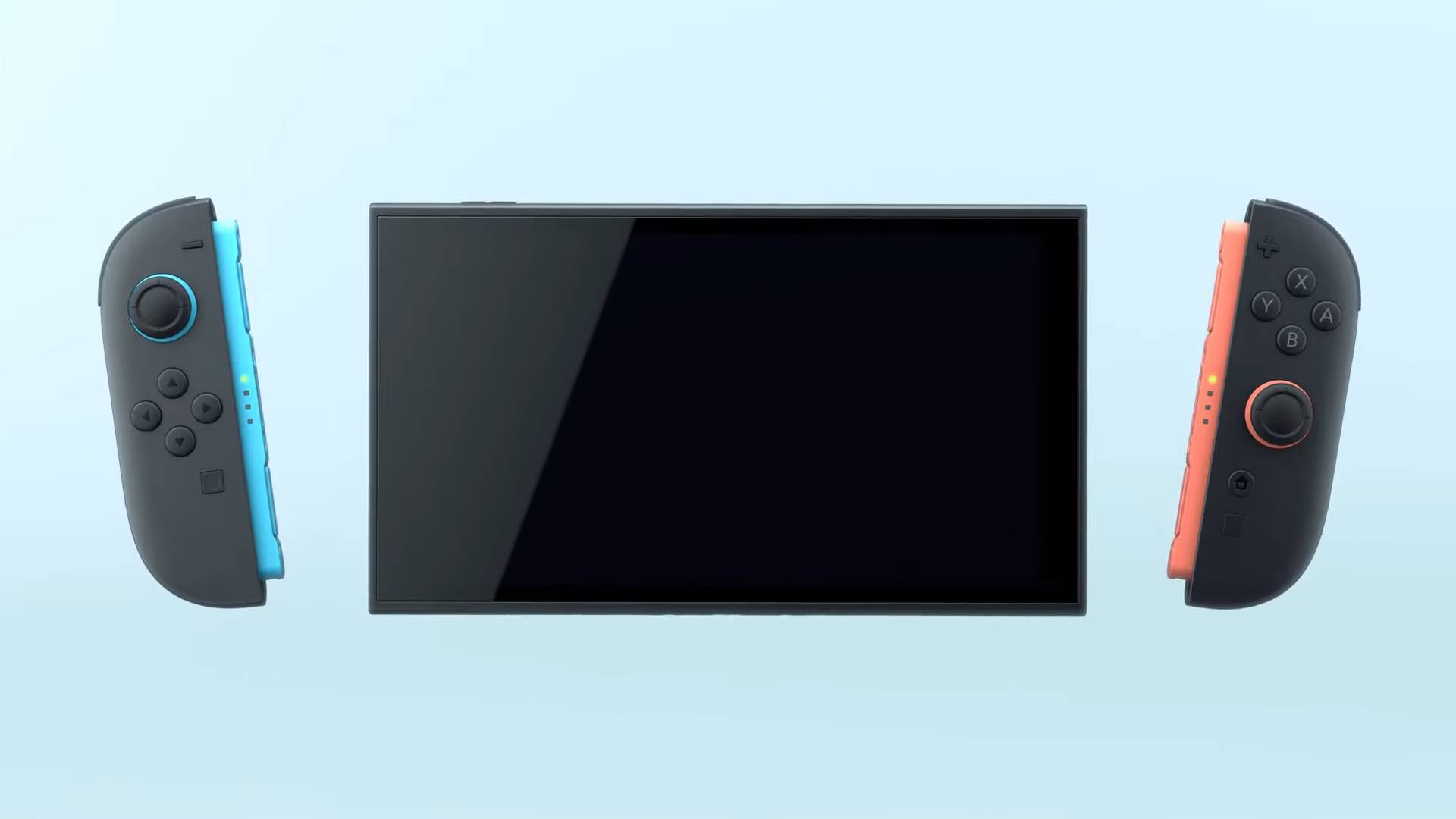Google I/O 2018: What to Expect (and How to Watch)
Google's annual developer conference starts on May 8. Here's a look at what Google could announce and how it will impact your Android devices.
From phones to smart speakers to virtual reality, Google has a lot of irons in the fire. And Google I/O, the company's annual developer conference, is where it gives us a glimpse at just what it's planning to do on those various platforms.

Google I/O 2018 kicks off today, and a lot of the talk will focus on developer-focused tools. But there will plenty of hints and glances at what you can expect from Android and its ecosystem of products in the near future. Here's what to expect at the event, from more details on this year's major Android update to additional Google Assistant capabilities, and a look at an upcoming Android TV device.
When Is Google I/O?
Google I/O begins today (May 8) and runs through Thursday (May 10). For the third consecutive year, it's being held at the Shoreline Amphitheater, a short walk from Google's main Mountain View campus.
When Can I Watch the Keynote?
The Google I/O keynote — where most of its major announcements happen — begins at 1 p.m. Eastern (10 a.m. Pacific) today (May 8). That keynote is scheduled to last 90 minutes, but given how much info Google tends to pack into its conference kickoff, expect things to run over. Google's shared its livestream schedule here, and it appears the keynote will broadcast from that page as well.
A second keynote on Tuesday at 3:45 p.m. EDT targets developers. Expect a deep dive into any new developer tools Google plans on unveiling at I/O. This keynote is scheduled to be streamed, too, if you really want to immerse yourself in the nuances of coding.
In recent years, the second day of I/O has featured a keynote on Google's virtual-reality efforts, but that's not on the agenda this time around. Instead, Google is changing things up with what it describes as "a series of keynote sessions which take a broader look at how the technology we build can impact the world around us." Topics includes sessions on machine learning and medicine, the future of artificial intelligence and design.
What Can I Expect from I/O 2018?
Those keynote sessions Google has listed provide a clue: machine learning and artificial intelligence have figured prominently into Google's plans of late, and this year's I/O looks to continue that focus.
Sign up to get the BEST of Tom's Guide direct to your inbox.
Get instant access to breaking news, the hottest reviews, great deals and helpful tips.
As for specific Google efforts, expect to hear something about any of the following topics.
Android P: Although a shipping version of the next Android OS won't arrive until late summer, Google uses its developer get-together to roll out a new developer preview. That trend is all but certain to continue at I/O 2018.

Google has already released one developer preview of Android P, which focuses on major decision changes to the mobile operating system. Among the highlights thus far are support for notch-based phone interfaces — all the better for supporting those iPhone X clones in the works — and new privacy features. Look for Google to elaborate on those features — especially privacy in the wake of Facebook's struggles with the same issue — while unveiling new Android P capabilities.
Google Assistant and Google Home: Speaking of Android P, the current developer preview suggests tighter integration between the mobile OS and Google Assistant. That could mean letting app makers integrate the assistant into their software. Google has had some success in this regard with third-party devices: this week, it announced that its digital assistant is now in 5,000 smart-home devices, though that's a drop in the bucket compared with the number of products that support Amazon's rival Alexa assistant.
Last year's Google I/O introduced us to Google Lens, the image-recognition technology that's since rolled out to all Android phones as well as the iOS version of Google Photos. We could be in line for a Google Lens update, as LG hinted at new Google Lens features being revealed at the developer conference when it unveiled its G7 ThinQ phone this week.
In addition to phones and third-party devices, Google Assistant can be found in Google's smart-speaker lineup. Considering that Google Home first got a preview two years ago at I/O as well as an update last year, it wouldn't be out of place to find out about additional ways Google plans to challenge Amazon's Echo lineup for smart-speaker dominance.
AR and VR: The absence of the VR-specific keynote of recent years doesn't mean Google's putting its virtual-reality ambitions on the back burner. The Google I/O agenda is packed with AR and VR sessions that just happen to be away from the spotlight of the keynote stage.
There's certainly plenty for Google to discuss. Last year, the company pumped the brakes on its Project Tango effort to bring a hybrid of VR and AR to smartphones, concentrating instead on ARCore to help develop more AR-centric apps for Android. Expect an update on that effort, along with any improved changes and enhancements to Google's Daydream VR platform.

On the VR front, Lenovo's Mirage Solo with Daydream support just went on sale, which is one of the first true stand-alone VR headsets. The $399 headset supports six degrees of motion and a faster processor than the cheaper $199 Oculus Go, but Google has a lot of catching up to do with Oculus when it comes to VR apps and games.
Auto News: Android Auto is Google's platform for connecting your Android phone to the dashboard of your car. Recent I/O conferences have rolled out improvements to Android Auto, and Google's agenda for this year's event includes an intriguing teaser. One of the Android Auto sessions promised "a brand new media experience for Android Auto" — we're expecting to hear more details in the main keynote.
The day before the I/O keynote, Google announced that it would share some Android Auto updates improved at helping developers deliver a better in-car experience, including enhanced media search and group messaging. Meanwhile, Volvo said it planned to add Google services including the Google Assistant, Play Store and Maps into future versions of its infotainment system. We'd expect to see a demo of that this week.
Android TV: Last month, images of an Android TV dongle briefly popped up on the web, suggesting that Google might come out with a Google Assistant-enabled streaming device that supports its Android TV platform. I/O would seem to be as good a place as any to confirm that this product exists as well as go over any other improvements to Android TV.
MORE: Chromecast vs Fire TV Stick vs Roku Stick: Face-Off
Wearables: Google's wearable OS was more or less MIA at last year's I/O, but that figures to change this year, after a few signs of life for Android wearables in recent months. For starters, there was a name change, with Android Wear becoming Wear OS in March. More recently, Google beefed up the integration between Wear OS and its assistant, with upcoming changes adding smart suggestions and audio feedback. Wear OS watches are also going to support third-party actions via Google Assistant. Look for Google to elaborate on these changes.
Android Things: Google has multiple sessions scheduled for Android Things, its embeddable operating system for smart devices, leading to speculation in the weeks before I/O that it would get more than just a mention in the keynote. In fact, a day before the keynote, Google announced that Android Things was ready to be added to devices. That's good news for products like the already-announced Lenovo Smart Displays that will be powered by Android Things, and we'd expect Google to have more information about this smart device platform now that it's ready for prime time.
Other Topics: The I/O agenda includes a session on what's new for Android apps running on Chrome OS. Google Photos could also be in for an update, or at least a preview of changes planned for Google's photo-sharing software.
Last month, Google unveiled plans to overhaul its oversize collection of messaging apps. Google could use the I/O spotlight to talk up its Chat platform and the Rich Communication Services messaging standard.
This article was originally posted May 5. We've updated it with new information regarding how to stream the keynote on May 8.
Philip Michaels is a Managing Editor at Tom's Guide. He's been covering personal technology since 1999 and was in the building when Steve Jobs showed off the iPhone for the first time. He's been evaluating smartphones since that first iPhone debuted in 2007, and he's been following phone carriers and smartphone plans since 2015. He has strong opinions about Apple, the Oakland Athletics, old movies and proper butchery techniques. Follow him at @PhilipMichaels.

